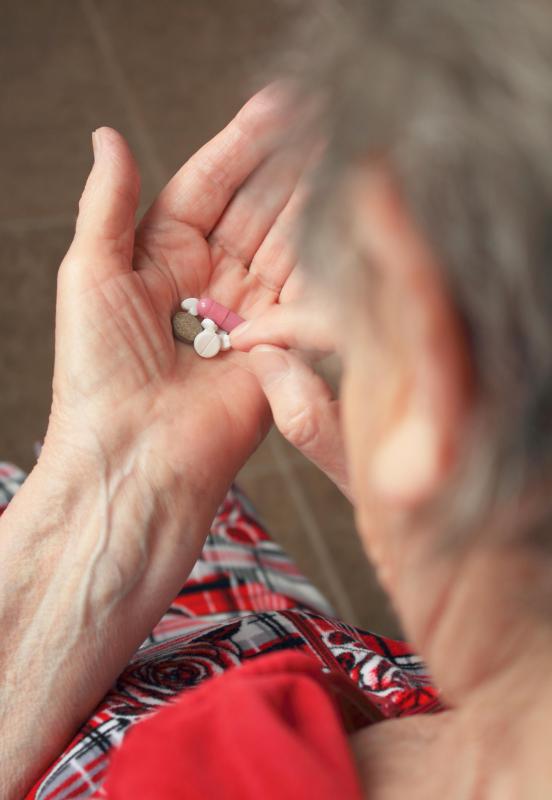At TheHealthBoard, we're committed to delivering accurate, trustworthy information. Our expert-authored content is rigorously fact-checked and sourced from credible authorities. Discover how we uphold the highest standards in providing you with reliable knowledge.
What are Body Tremors?
A body tremor is an uncontrollable muscle contraction that causes shaking or twitching. Body tremors can affect an isolated body part, or sometimes they may spread throughout various parts of the body. The condition may be caused by a number of underlying factors from simple lack of sleep to a more serious medical disorder such as Parkinson’s disease.
The back-and-forth involuntary movement associated with body tremors is known as an oscillation. Onset and duration of such tremors may vary, although the movement is usually rhythmic in nature. While the hands are the most common source of oscillations, nearly any part of the body can be affected, including the face, the legs, the head, and even the vocal cords.

Classification of body tremors exists under four major types, with several subtypes. Each classification is made based on when the muscle contractions are at their most severe. For example, intention tremors are so named because they are more severe when the afflicted individual is engaging in any type of intentional movement. These types of tremors produce slow, expansive oscillations. They are caused by damage to the brain’s cerebellum from strokes, tumors, or degenerative disorders, and thus they are also known as cerebellar tremors.

Resting tremors constitute those contractions at their worst when the body is at rest. The main subtype of resting tremors is the Parkinsonian tremor. It is so named because this contraction frequently signals the development of Parkinson’s disease. Generated from brain damage, the Parkinsonian tremor often concentrates in one hand or limb and eventually moves to the other side of the body. Tremors deriving from drug use also typically manifest as resting tremors.

A third type of body tremors occurs when body parts are tense and contracted. Contraction tremors generate from the body’s response to certain stimuli, and therefore they consist mainly of physiological tremors. Stress, fever, exhaustion, alcohol withdrawal, and hunger may all cause body tremors, and, as such, treating the root cause usually eliminates the condition. Physiological tremors may not even be visible to a casual observer.

The final type of body tremors — posture tremors — happen when an individual is in a postured position against gravity, such as when he or she has an arm raised. Posture tremors consist of some physiologic tremors and a subtype called essential tremors. Mostly, essential tremors have many of the same causes and features as physiologic tremors. Essential tremors do have a few important variances, including their initial mildness, their progression in severity over time, their attacks on middle-aged individuals, their concentration on one side of the body in the head or the hands, and their possible heritability. Essential tremors are also the most common type of tremor.

The overall number of body tremor sub-classifications stands around 20. An additional possible affliction is the dystonic tremor, characterized by twisting and repetitive movements associated with the movement disorder dystonia. Another condition is discernible by its cramping and shaking effect on the legs: the orthostatic tremor. Even psychiatric disorders may lead to a psychogenic tremor, which features a quick and sudden onset and disappearance. When an individual’s midbrain is injured, rubral tremors can result, producing slow and lingering involuntary movements.
Despite the varying types, body tremors have several commonalities. For one, they are most likely to occur in individuals who have surpassed age 50. No significant differences exist between the numbers of males and females who may develop the condition, however. Certain side effects are also frequently associated with body tremors, most notably a shaky voice and difficulty with fine motor movements like writing or holding utensils.
A hospital visit can best determine the type, cause, and possible treatment for body tremors. Reflex and sensory tests may be performed, and a detailed family history will likely be undertaken. The doctor may also perform neurological tests to determine if an underlying brain injury or disorder can be discovered. Treatment is dependent upon the root cause, and may be as simple as eliminating stimuli triggers. In severe cases, the recommended course of action may involve a more complex procedure like surgery.
AS FEATURED ON:
AS FEATURED ON:















Discuss this Article
Post your comments